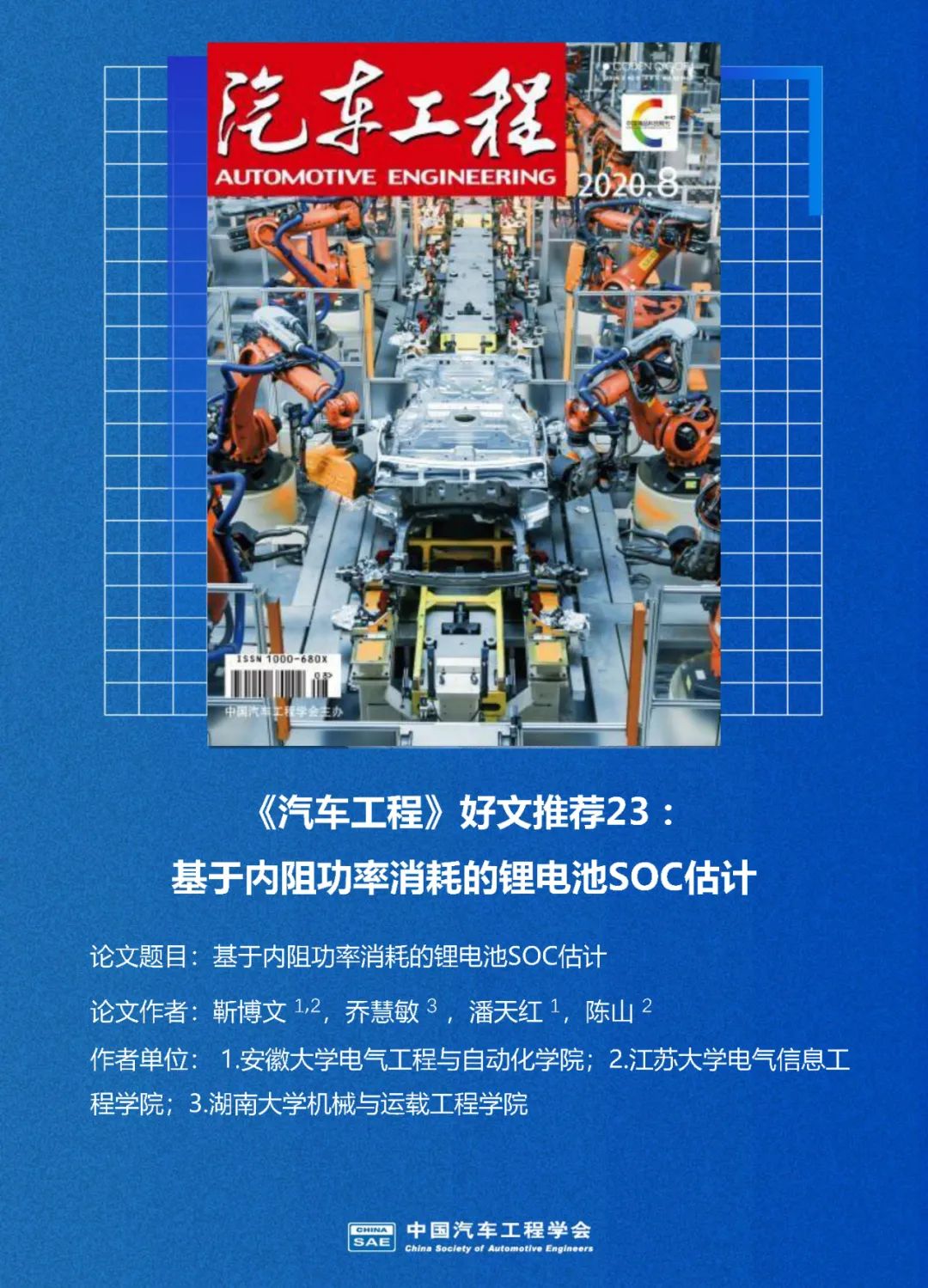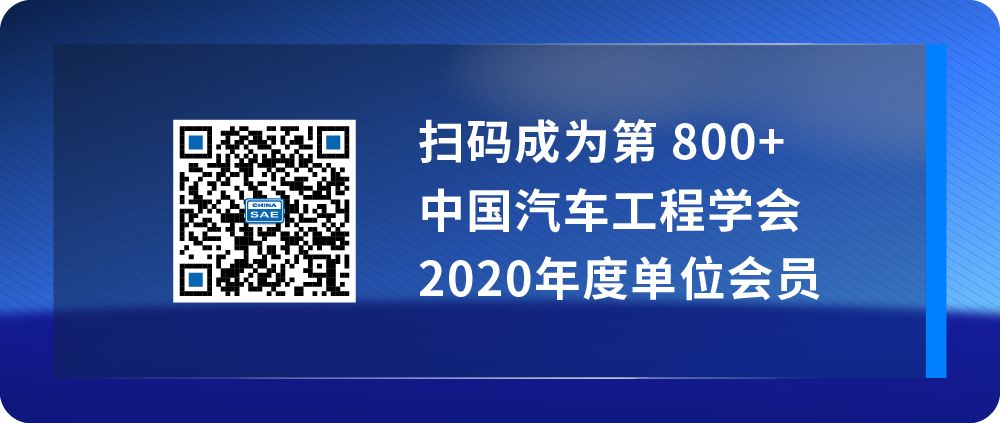

The editorial department of Automotive Engineering will recommend three papers in the 8th issue of 2020 to readers, aiming to stimulate industry attention and discussion on these papers and related technologies.
Research Background
The State of Charge (SOC) represents the remaining battery capacity, and estimating the battery SOC is a crucial part of the Battery Management System (BMS). The accuracy of SOC estimation depends on the battery model and its corresponding estimation methods. Current estimation methods use rated capacity calibrated under normal temperature discharge conditions, without considering the effects of temperature, charge-discharge rate, and health status on battery capacity.
Research Method
The paper first selects a first-order Thevenin variable parameter equivalent circuit model, and tests multiple influencing factors of the battery through hybrid pulse testing experiments, combining the least squares method to identify the circuit model’s ohmic resistance, polarization resistance, and polarization capacitance parameter values. Next, based on different usage requirements, the battery discharge current is controlled to stabilize battery capacity. Additionally, the battery’s temperature, high-frequency fluctuation current, and health status are introduced into the integral term to measure the battery capacity consumption rate, using a power integral algorithm to estimate the remaining capacity of the battery. Then, using ampere-hour integration and power integration combined with the Extended Kalman Filter (EKF) algorithm, the SOC of the battery is estimated in real-time. Finally, a rapid control prototype verification platform is established for online simulation verification.
Research Results
Simulation results indicate that: under different temperatures, the maximum error of the total battery discharge capacity compared to rated capacity is 1.04%; in constant current discharge experiments, the combination of ampere-hour integration and EKF can timely correct the initial error of ampere-hour integration; in controlled current discharge experiments, the combination of ampere-hour integration and EKF can correct errors while maintaining high accuracy during temperature changes, and the battery temperature rise caused by the discharge current under total power control is minimal; in complex discharge current experiments, the combination of power integration and EKF maintains high estimation accuracy under varying temperatures.
Innovations and Significance
This paper addresses the usage scenarios of lithium batteries, focusing on internal resistance energy consumption, proposing a power-based discharge strategy, and combining different discharge strategies and SOC estimation methods with the EKF algorithm to estimate the SOC of the battery in real-time, ensuring high SOC estimation accuracy under various discharge current conditions, thus expanding the applicability of SOC algorithms.

Scan the QR code above to get the full text for free

Scan the QR code above to get the full text of the 8th issue of 2020 for free
Automotive Engineering was founded in 1979 and is sponsored by the China Society of Automotive Engineers. It is an academic journal that comprehensively reflects the research level of China’s automotive industry, holding great authority and influence in the domestic automotive technology academic community. It is indexed by multiple databases, including the Engineering Index (Ei), and is the only Ei-indexed scientific journal in the Chinese automotive industry.
Online Submission
1. Submissions should be original papers that have not been published before, and multiple submissions are not allowed;
2. You can log on to the journal’s official website to read and submit for free:
www.qichegongcheng.com
Contact Person: Teacher Yang
Phone: 86-10-50950106
Email: [email protected]
Previous Highlights:
Good Article Recommendation 22: Optimal Control Strategy Design for Emergency Lane Change Avoidance Based on Radau Pseudospectral Method
Good Article Recommendation 21: Active Rear Wheel Steering Dynamics Control and Experimental Research Considering Uncertain Disturbances
Good Article Recommendation 20: Optimization Design of Automotive Occupant Restraint System Based on Adaptive Proxy Model
Good Article Recommendation 19: Study on the Prediction of Random Motion State of the Preceding Vehicle Based on Dangerous Scenario Clustering Analysis
Good Article Recommendation 18: Lightweight and Crashworthiness Design of Vehicle Front End Based on Multi-cell Structure




